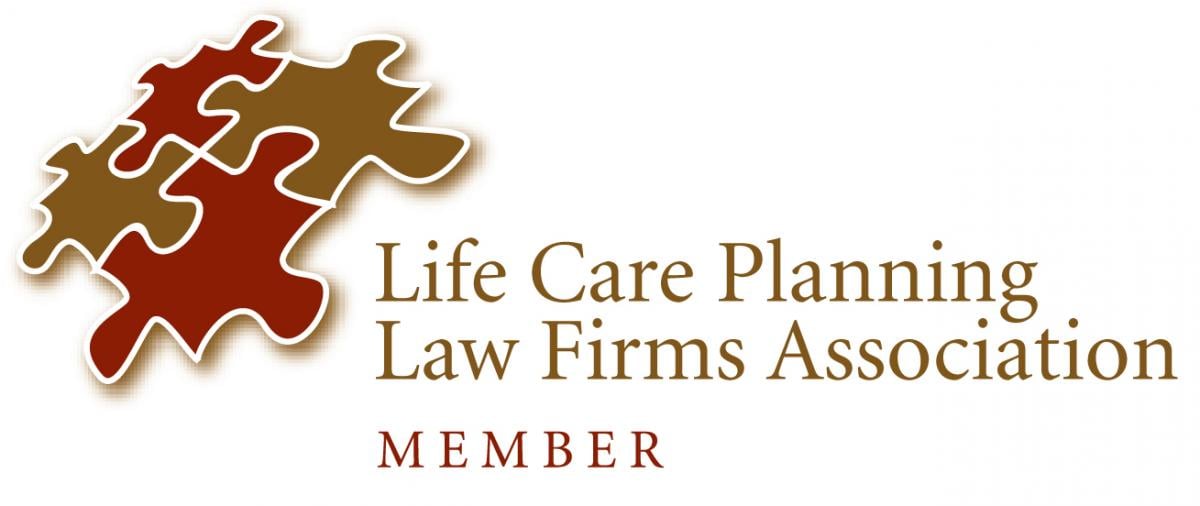Assisted living costs can vary from $2,000 to $5,000 monthly. Depending on what type of care your loved one needs, assisted living can be the most affordable solution when compared to a nursing home ($5,000 to $10,000 or more per month) or long-term in-home care. If closely monitored medical supervision is not necessary for your aging senior, assisted living might be the best financial choice.
If your loved one or their spouse is a Veteran, residential care could be paid for in a variety of situations with Veterans benefits. There is a set of benefits available to those with disabilities or service-related injuries, and there is also another set of benefits called Aid and Attendance, made available to any Veteran or surviving spouse who is both disabled and whose income is below a certain threshold. The Veterans Administration website outlines the complicated process to access benefits. It is extremely beneficial to work with an elder law attorney who knows the details of the programs and can assist with the application.
A life insurance policy can pay for your loved one’s assisted living. Often, seniors have a long-standing policy that was implemented to help family members upon their death, but a life insurance policy can provide financial support now. A process known as “accelerated” or “living” benefits is a “cash out” policy that can have your senior redeem 50 to 75 percent of the face value of the policy. Each amount is based on specific policy conditions as well as individual corporate rules. Some policies can only be cashed out if the policyholder is terminally ill while other companies are more flexible in cash outs. If your senior’s particular company does not allow the policy to be cashed, it can still be sold to a third-party company who usually affords the same 50 to 75 percent face value cash out. That company continues to pay the original premiums until their death, at which time the company redeems the full value of the policy. Finally, if your loved one’s policy is of lesser value, it may qualify for a life settlement option known as a “life assurance” benefit or conversion program, which allows the senior to convert between 15 and 50 percent of the policy value directly into long-term care payments.
Does your loved one have a long-term care insurance policy? It can pay the assisted living costs. Policies vary, but once the determination and action is taken to collect on it, those monies can be paid directly to an assisted living facility or to the beneficiary who in turn pays the facility. It is wise to consult with an elder law attorney to help understand individual company requirements to optimize the process of collection.
An annuity can be used to pay for some or all of the senior’s assisted living. If your loved one invests a lump sum into an annuity, they will receive regular payments over a promised time period, usually the rest of their life. The annuity helps to stretch your senior’s budget and guarantee at least some money is coming in, even in the event they live longer than expected. Most annuities allow the beneficiary to continue to receive money regularly even if the purchase premium runs out. If your senior were to live a very long time, they would get more back than they put in and an added bonus is that annuities are oftentimes not fully counted as assets by Medicaid when applying for government assistance. The income is counted but not the value of the asset. It is imperative to seek the advice of an elder law attorney before opting into an annuity as they are complex financial products and a wrong decision could be disastrous.
Reverse mortgages are another strategy to pay for the assisted living costs. If your loved one owns their home outright or has only a small mortgage on it, they can get cash value from their home equity in a lump sum or series of monthly payments. The bank will decide the valuation of the home based on multiple factors like the homes worth, interest rates and the applicant’s age. The borrower can stay in the house until death even if the loan balance exceeds the worth of the home. After death, the loan balance has to be repaid which usually means selling the home. Reverse mortgages were developed to help widows remain in their homes after the primary income earner passed away or if that spouse needed to move into assisted living, leaving the other spouse to reside in the long-time family home. Like annuities, a reverse mortgage is a complex financial product, and it is crucial to receive sound advice from a trusted professional and work with a reputable reverse mortgage company. If only one senior parent is living and they do not want a reverse mortgage, they might consider renting out their home and using a landlord to manage the property. The income from renting the house can be used to pay for assisted living expenses.
Lastly, it is possible to pay for assisted living with a bridge loan, which is a short-term loan of up to $50,000 explicitly designed to provide funds to move a loved one into an assisted living facility or continuing care retirement community. It is an unsecured (no collateral required) line of credit with the intent to finance the first few months of living expenses during the sale of the senior’s home, while the application for Veterans benefits is pending, or other actions that are taken that free up funds. Since the interest rates can range from 8.25 to 12.5 percent, this option is best as a short-term strategy. The other type of bridge loan is called the Capital Access Program. It is a lower interest lump sum loan secured by real estate or other assets that the company deems acceptable collateral. It is designed to help seniors come up with the large upfront entrance fee some senior assisted living facilities require. Both types of loans are based on the usual credit criteria: credit score, credit history, debt to income ratio, and more. The senior or an adult child can secure the loan, and up to six family members can cosign loan applications, allowing the risk to be shared among multiple family members.
If your loved one is healthy enough to successfully live in an assisted living facility, the assisted living costs are likely a top factor when considering their options. These are some, but not all of the viable and creative ways to pay these costs. To fully explore the options available and what is best for your senior seek the advice of an experienced elder law attorney and make the best decision for your loved one. Contact our office today and schedule an appointment to discuss how we can help you with your planning and which strategy is best to help your senior pay for assisted living.
Dafoe Law, PLLC is a Life Care Planning law firm serving the Elder Law, Estate Planning, Long-Term Care, Probate, and Trust Administration needs of clients in Saginaw, Bay, Genesee, Huron and Tuscola Counties. Dafoe Law serves Frankenmuth, Bridgeport, Birch Run, Reese, Millington, Clio, Vassar, Saginaw, Saginaw Township, Freeland, Thomas Township, Spaulding Township, Burt, Bay City, Essexville, Munger, Kochville Township, Caro, Cass City, Sebewaing, Unionville, Pigeon, Bad Axe. Travis I. Dafoe is a member of the National Academy of Elder Law Attorney and WealthCounsel. Dafoe Law, PLLC is also a member of the Life Care Planning Law Firm Association.







